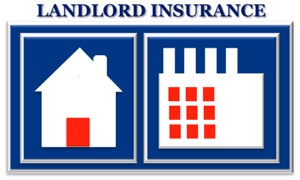 Landlord Insurance is crucial when protecting your investment; however, effective landlord-tenant communication – which doesn’t cost a dime / just a little time and effort—is just as important. We understand that, as a landlord, you have a lot on your plate, from screening applicants to maintaining your property; however, taking the time to communicate with your tenants could save even more time and effort down the road.
Landlord Insurance is crucial when protecting your investment; however, effective landlord-tenant communication – which doesn’t cost a dime / just a little time and effort—is just as important. We understand that, as a landlord, you have a lot on your plate, from screening applicants to maintaining your property; however, taking the time to communicate with your tenants could save even more time and effort down the road.
Communication is crucial from the time a potential tenant fills out the application to when they move out. It can help avoid misunderstandings, prevent conflicts, lower tenant turnover, and protect your property, saving time and headaches. Good communication between you and your tenant(s) can also save you money, resulting in higher profits.
The Cost of Tenant Turnover
Tenant turnover is a costly part of property rentals that landlords and property managers can’t ignore. Tenant turnover creates vacancies, eats up more of your time, and lowers your profit. According to Apartments.com, the average turnover cost ranges from $1,000 to $5,000.
This cost can come from the following and more:
- Cleaning the unit
- Getting rid of anything left behind
- Changing locks
- Possibly re-painting
- Repairing any damage
- Advertising
- The lost income from a vacant unit
- Screening applicants
- Higher insurance costs if it remains vacant
“Reducing turnover isn’t just about preparing a vacant unit for a new tenant; it’s also about retaining good tenants. Landlords can save time, money, and effort by implementing tenant retention strategies. This includes responsive maintenance, periodic property inspections, and creating a positive living environment that encourages tenants to renew their leases,” Swiftland states. “By focusing on tenant satisfaction and fostering positive landlord-tenant relationships, landlords can significantly decrease the turnover rate, ensuring a more stable and profitable rental property.”
A vital component of “fostering positive landlord-tenant relationships” is effective communication.
Tips for Effective Landlord/Tenant Communication
- Properly Screen Tenants
Good communication should begin before you allow a tenant to move into your property by adequately screening them: run credit, background, and employment checks and conduct an in-person interview. - Set Clear Expectations
Begin setting clear expectations during your first contact with them. Before they sign the rental agreement, verbally go over key points, such as rent payments, policies or rules, and maintenance responsibilities. It also doesn’t hurt to remind them of policies occasionally. - Be Responsive
Address maintenance issues as quickly as possible. If a tenant contacts you with a question you can’t answer immediately, let them know that you understand their question and that you are working on getting the answer. - Foster Trust
Trust is earned, and you can earn your tenants’ trust by responding quickly, keeping them updated and in the loop, and always being honest with them. - Provide Multiple Communication Channel Options
Just like your friends and family, you will discover that everyone has different communication channels they prefer – text, email, voicemail, etc. You can ask them what their preferred channel is when they first move in. In addition, certain communications should be delivered through certain channels. For example, longer messages can be sent by email, quick communication can be made through text, and important communication is usually best done through a phone call or letter. - Use Written Communication
Having written documentation, such as an email or text, can help both parties understand what is being said and provide evidence if a dispute occurs. - Be Friendly and Professional
You want to act like an efficient waitperson or sales clerk and find the perfect balance between being professional (responding to their needs, getting back to them promptly, etc.) and friendly (asking them how they are, talking about the weather, smiling, etc.). - Keep Messages Simple
If you’re sending an email or text or leaving a voicemail, you may be tempted to give every detail, but short and simple is usually the most effective way to communicate. Let them know what the issue is or what is going on without giving details that aren’t relevant. Don’t use big words. - Solicit Feedback
Retailers understand the value of feedback. Landlords can use the same tactic by sending out short surveys, conducting quick interviews, or simply asking for verbal feedback. - Conduct Exit Interviews
Conduct an exit interview when tenants leave and ask why they are moving out. The answer may be something you can’t control, such as they’re moving into a bigger place, buying a home, etc., or it could be something you can control with future tenants, such as maintenance issues, lack of communication, etc.
Protect Your Investment With the Right Landlord Insurance
At American Insuring Group, we offer comprehensive landlord insurance policies that cover a range of risks, from property damage to liability claims. Our affordable policies protect your investment and give you peace of mind.
Call us today at (800) 947-1270 or (610) 775-3848, or connect with us online.



 As the owner of a commercial building, any permanent upgrades made to your property by a tenant become your property, not the tenant’s property. This may seem obvious, but consider the impact should damage be done to such improvements during the tenant’s leasing period. Whose insurance will pay for the repair or replacement cost? Will either insurance policy pay? Will both pay? Can you live with the uncertainty of not knowing?
As the owner of a commercial building, any permanent upgrades made to your property by a tenant become your property, not the tenant’s property. This may seem obvious, but consider the impact should damage be done to such improvements during the tenant’s leasing period. Whose insurance will pay for the repair or replacement cost? Will either insurance policy pay? Will both pay? Can you live with the uncertainty of not knowing?


 5 Easy Steps to Better Public Liability Insurance Protection & Greater Savings:
5 Easy Steps to Better Public Liability Insurance Protection & Greater Savings:




